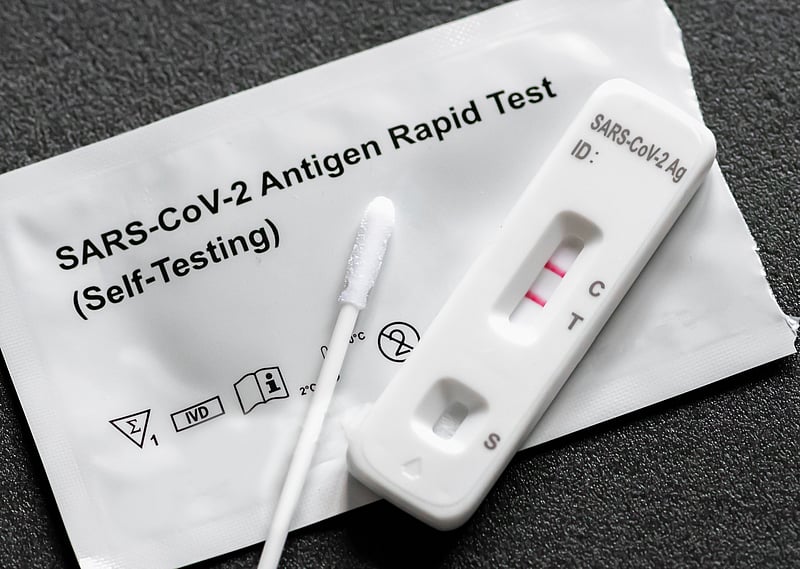Due to a recent change in our pharmacy software system, the process for submitting refill requests online has now changed.
Our previous mobile app and your current login credentials will no longer work.
Please click the Patient Portal tab to begin the new process.
Thank you for your patience during this transition.
Get Healthy!

- Dennis Thompson
- Posted September 13, 2023
Can You Still Get COVID Tests for Free?
COVID-19 hospitalizations and deaths are gradually increasing in the United States, as two new variants gain a foothold in the nation. And with that rise, more people are looking for COVID test kits.
Hospitalizations rose by nearly 9% and deaths by nearly 11% in late August/early September, according to the latest tracking data from the U.S. Centers for Disease Control and Prevention.
However, the U.S. government suspended in June a pandemic-era program that shipped free COVID-19 tests to Americans.
Don't give up hope though: There are still low- and no-cost options out there for folks who need test kits.
To start with, check whether the COVID tests you already have on hand are still viable.
Every test kit carries an expiration date, but the U.S. Food and Drug Administration now says some tests may be effective past that date based on additional information from test manufacturers. In fact, the agency maintains an online checklist of tests and their extended expiration dates, based on lot numbers.
"An extended expiration date means the manufacturer provided data showing that the shelf-life is longer than was known when the test was first authorized,"the FDA says.
Another piece of good news: Experts say the current at-home tests should be effective in detecting the new Eris variant (EG.5), which currently causes about one in every five infections, according to CDC tracking data.
That's also true for the Fornax variant (FL.1.5.1), which is causing about 15% of U.S. infections.
Both variants are descendants of the Omicron variant, and current tests are designed to detect a part of the COVID virus that's less likely to mutate, experts say.
Cash-strapped folks with no at-home tests on hand can also seek out free testing sites near them.
Even after the official end of the COVID emergency, the federal government continues to support a network of about 10,000 free testing sites throughout the United States.
These include participating CVS and Walgreens pharmacies, as well as Quest Diagnostics patient service centers and community-based testing sites.
The CDC maintains a locator website where people can look for local no-cost COVID testing. You should also check your state or city health department's website for nearby testing programs.
Folks who think they have COVID-19 also might want to check and see if their private health insurance reimburses the cost of either an at-home test or a test performed at a clinic.
Some insurers stopped covering the full cost of at-home tests following the end of the COVID public health emergency, but they still might cover part of the cost of an at-home test.
Timing is important in terms of when to take a COVID test, so none are wasted.
A person with symptoms should test right away, according to the CDC.
But someone without symptoms who thinks they've been exposed to COVID-19 should wait at least five full days before taking a test, or there might not be enough detectable virus in their system, the CDC says.
If you test positive for COVID-19, you should self-isolate for at least five days and wear a mask through day 10 following the test, the CDC recommends.
People with moderate or severe symptoms of COVID-19 should isolate through at least day 10, the CDC says.
"Those with severe COVID-19 may remain infectious beyond 10 days and may need to extend isolation for up to 20 days,"the CDC says.
More information
Yale Medicine has more about the Eris strain of COVID.
SOURCES: U.S. Centers for Disease Control and Prevention, U.S. Food and Drug Administration
